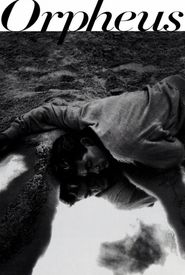Renée Cosima, a multifaceted individual whose captivating on-screen presence was a masterful amalgamation of disparate qualities, expertly concealing a complex and multifaceted personality. As a stunning beauty, she was endowed with an undeniable allure, yet this was tempered by an equally remarkable ability to convey a wide range of emotions, effortlessly transitioning between innocence, guile, wickedness, and mystery, as exemplified in her notable film appearances in 'Les enfants terribles', a cinematic masterpiece that showcased her versatility and range, followed by 'Au royaume des cieux', a film that highlighted her ability to convey a sense of ethereal wonder, and finally 'Les naufrageurs', a production that demonstrated her capacity to embody a sense of danger and intrigue.
Renée's early life and career unfolded with a tantalizing promise of stardom, only to be suddenly and inexplicably interrupted by a stagnant period that defied explanation. As a former pupil of the esteemed Opéra de Paris Ballet, she had been blessed with a natural aptitude for dance that seemed destined to propel her to the very forefront of her profession. Yet, an unexpected turn of events, precipitated by health issues that ultimately necessitated her withdrawal from the world of dance, brought about a radical shift in the trajectory of her life, forever altering the course of her journey.
Renée's arrival in France in 1947 marked the beginning of a transformative period in her life, as she suddenly discovered a profound and all-consuming passion for the world of theatre. This newfound enthusiasm would ultimately set her on a path that would lead to her being discovered by the cinematic industry, forever changing the trajectory of her career.
It was during this pivotal moment that Renée secured a string of memorable roles in a diverse range of films directed by some of the most acclaimed and influential filmmakers of the time. Her talent and versatility caught the attention of the visionary Jean Cocteau, the masterful Jean-Pierre Melville, and the esteemed Julien Duvivier, each of whom recognized her immense potential and gave her the opportunity to shine in their films.
But Renée's impressive acting talents did not go unnoticed solely on the silver screen. She also took to the stage, delivering captivating performances in productions of renowned plays penned by celebrated playwrights such as the illustrious George Bernard Shaw and the revered Federico Garcia Lorca. Her ability to bring these complex characters to life, imbuing them with depth and nuance, earned her a reputation as a talented and dedicated actress, respected by her peers and admired by audiences alike.
Renée's journey as a performer was marked by a series of milestones and achievements, each one building upon the last to establish her as a force to be reckoned with in the world of entertainment. Her passion for her craft, combined with her natural talent and dedication, made her a true standout in the industry, and her legacy continues to inspire and influence generations of actors and filmmakers to this day.
Renée Cosima's extraordinary and illustrious career in the world of entertainment reached unprecedented and remarkable heights when she had the extraordinary privilege of bringing to life the renowned and celebrated French artist Suzanne Valadon, a woman of immense talent and creativity, alongside the equally celebrated and accomplished painter Maurice Utrillo, a master of his craft, in a short film that was expertly and meticulously directed by the highly skilled and accomplished filmmaker Pierre Gaspard-Huit, a master of his craft.
Renée's professional journey in the entertainment industry underwent a profound metamorphosis subsequent to her marriage to Guenaël Bolloré, a prominent industrialist, in the year 1957. As a direct outcome of her union, Renée's public profile began to fade gradually, precipitating a gradual disconnection from the limelight. This pivotal moment in her life marked a significant turning point, ultimately leading to her passing at the age of 58, leaving behind a relatively modest yet enduring legacy in the realm of cinema.


















